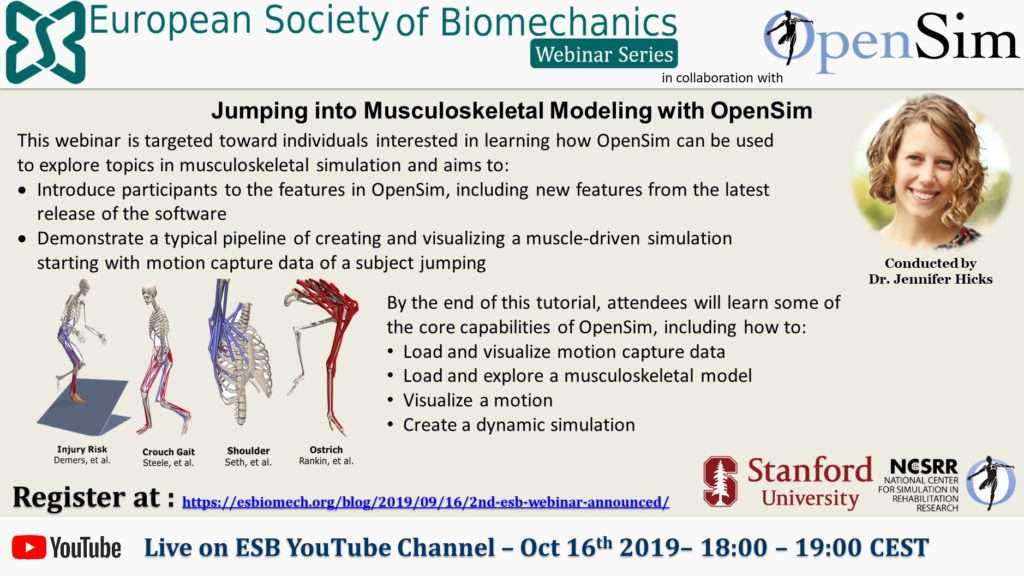Jumping into Musculoskeletal Modeling with OpenSim
We are delighted to announce the second webinar of the ESB Webinar Series which will introduce the OpenSim Software. The webinar will take place on October 16th 2019 at 18:00 CEST.
OpenSim is a freely-available, open-source musculoskeletal simulation software for visualizing and simulating movement. Musculoskeletal modeling and simulation are powerful tools to help understand the complex interactions between the neuromuscular and skeletal systems during movement.
This webinar aims to:
- Introduce the main capabilities of OpenSim, including new features from the latest release of the software
- Demonstrate a typical pipeline of creating and visualizing a muscle-driven simulation starting with motion capture data of a subject jumping
By the end of this tutorial, attendees will learn some of the core capabilities of OpenSim, including how to:
- Load and visualize motion capture data
- Load and explore a musculoskeletal model
- Visualize a motion
- Create a dynamic simulation.
The webinar will be conducted by Dr. Jennifer Hicks. Dr. Hicks is Associate Director the National Center for Simulation in Rehabilitation Research, an NIH-funded center at Stanford University that brings state-of-the-art engineering tools to rehabilitation scientists. In addition, she is the Research and Development Manager of the OpenSim software project, guiding the project’s development team and serving as the voice of the software user/researcher.
The seminar will last 45 minutes followed by 15 minutes of Q/A from the audience. You will have the chance to ask your questions which will be addressed by the speaker at the end of the webinar. However, it would be great if you could send your question in advance while filling the registration form or by sending to Ehsan.soodmand@charite.de and/or rodrigo.romarowski@grupposandonato.it before the start of the webinar.
Click here to register for the webinar.
October 16th 2019 18:00 CEST
Live on ESB YouTube Channel – Please Subscribe! (https://www.youtube.com/esbiomech )
Looking forward to your attendance.
ESB Student Committee









